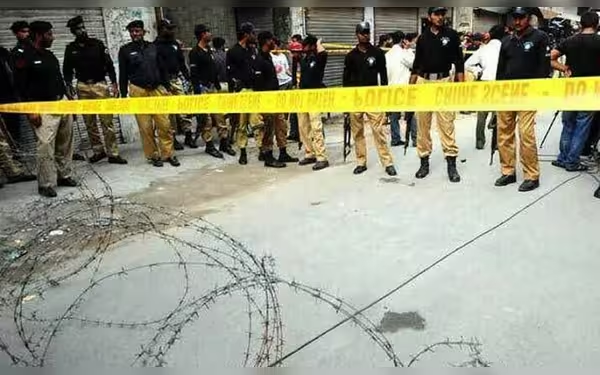Monday, December 23, 2024 09:47 AM
JUI-F Leader Killed in South Waziristan Explosion
- JUI-F leader killed in South Waziristan explosion.
- Six militants dead in clashes with security forces.
- Ongoing violence raises concerns for local communities.
 Image Credits: dawn.com
Image Credits: dawn.comA JUI-F leader was killed in an explosion in South Waziristan, highlighting ongoing violence and challenges for local communities and security forces.
In a tragic incident that has sent shockwaves through the region, a local leader of the Jamiat Ulema-e-Islam (Fazl) party was killed in an explosion in South Waziristan. This area, known for its rugged terrain and history of militancy, has been a focal point of conflict between security forces and various militant groups. The explosion, which occurred during a time of heightened tensions, underscores the ongoing challenges faced by authorities in maintaining peace and security in the region.
According to reports, the explosion not only claimed the life of the JUI-F leader but also resulted in the deaths of at least six militants during fierce clashes with security forces. These clashes erupted as security personnel engaged in operations aimed at neutralizing threats posed by armed groups in the area. Sources indicate that security forces responded to the situation by targeting the alleged militant locations with artillery fire, a tactic that has been employed in previous operations to dismantle militant strongholds.
The loss of the JUI-F leader is particularly significant, as local political figures often play a crucial role in mediating between communities and security forces. Their presence can help foster dialogue and reduce tensions, making such incidents all the more concerning for local residents. The ongoing violence not only affects the immediate victims but also creates an atmosphere of fear and uncertainty among the populace.
As the situation continues to unfold, it is essential for the government and security agencies to reassess their strategies in dealing with militancy in South Waziristan. Engaging with local communities, understanding their grievances, and addressing the root causes of extremism could be vital steps toward achieving lasting peace. The tragic loss of life in this incident serves as a stark reminder of the complexities involved in the fight against militancy and the need for a comprehensive approach that prioritizes both security and community engagement.
The recent explosion in South Waziristan highlights the persistent challenges faced by both local leaders and security forces in the region. As the community mourns the loss of its leader, it is crucial to reflect on the broader implications of such violence and the importance of fostering a peaceful environment for all. Only through collaboration and understanding can the cycle of violence be broken, paving the way for a more stable future.













